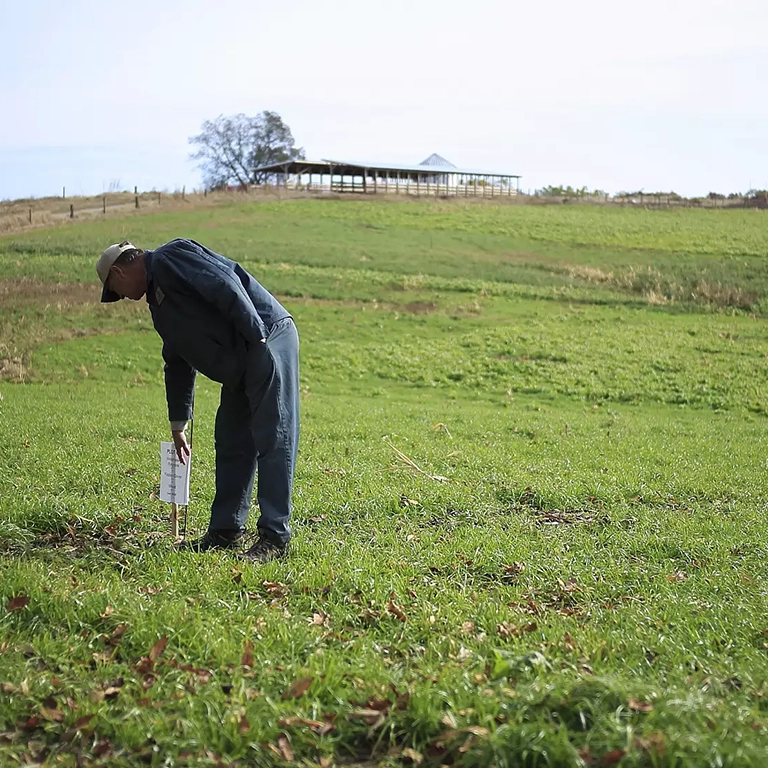Millions of people depend on American farmers across the nation and around the world. However, an increasing number of droughts, floods, storms and wildfires cause costly disasters to the U.S. economy, including agriculture.
In the 1980s and 1990s, 3.7 weather and climate events per year cost more than a billion dollars, adjusted for inflation; each of the past five years, 2019 to 2023, averaged 19.8 such costly events. According to the American Farm Bureau, major disasters and severe weather caused over $21 billion in crop losses alone in 2023.
Janet McCabe, former deputy administrator of the U.S. Environmental Protection Agency, spoke at the symposium about the concerns she heard from rural Hoosiers during her time as director of the IU Environmental Resilience Institute.
“Environmental changes are impacting the agricultural economy in the U.S., including Indiana, where we see more extreme storms and flooding,” McCabe said. “This affects the bottom lines of people who do business in the state, especially farmers, communities and local officials.”
Indiana is the ninth largest farming state, with agriculture contributing $35.1 billion to the state’s economy, according to the Indiana State Department of Agriculture. However, increases in temperature and precipitation due to carbon dioxide in the air are leading to a greater risk for higher production costs and lower yields for some crops based on a recent climate report on Indiana.
Farmers are already making adjustments to protect their profitability by purchasing flood- and heat-resistant seeds. However, there is a point of no return where it will be impossible to adapt.
“What happens if Indiana’s yields decrease dramatically due to severe weather and insurance rates for farmers go up?” Dumortier said. “That would be a substantial financial consequence, not just for farmers, but for the average grocery store shopper.”



